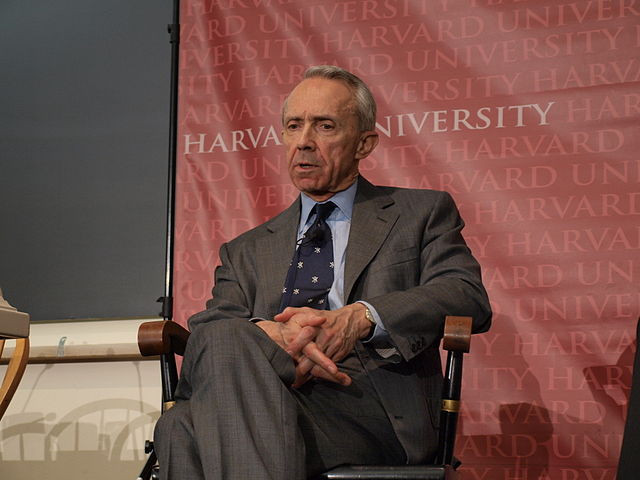Retired Supreme Court Justice David Souter, a Republican appointee who frequently aligned with the Court's liberal wing, died Thursday at his home in New Hampshire, the Supreme Court announced Friday. He was 85.
Chief Justice John Roberts called Souter "a man of uncommon wisdom and kindness," noting that after stepping down in 2009, he "continued to render significant service to our branch by sitting regularly on the Court of Appeals for the First Circuit for more than a decade."
Souter was appointed in 1990 by President George H.W. Bush as a replacement for Justice William Brennan. Initially heralded by conservatives as a safe choice who would not stir political opposition, Souter quickly became a source of frustration for the right. Within two years, he joined the majority in Planned Parenthood v. Casey, a landmark 1992 ruling that upheld the constitutional right to abortion and reaffirmed Roe v. Wade. That decision, which endured until Dobbs v. Jackson overturned it in 2022, made Souter a symbol of conservative miscalculation in judicial appointments.
Born in Massachusetts in 1939 and raised in New Hampshire, Souter studied at Harvard, Oxford, and Harvard Law School before beginning a legal career in New Hampshire's attorney general's office. He eventually served on the New Hampshire Superior Court and later the state Supreme Court before joining the U.S. Court of Appeals for the First Circuit, where he served only briefly before ascending to the nation's highest court.
In the courtroom, Souter favored restraint and precision, often avoiding sweeping pronouncements. "The whole point of it was that it was a Constitution and a Bill of Rights for the indefinite future," he said during a 2012 event. "The application of these values... was an assignment that was left to the future."
Souter was known for a humble and contemplative demeanor, declining to use email, shunning Washington social life, and drafting opinions by hand. Asked about the prospect of cameras in the courtroom, he once responded, "Over my dead body."
He dissented in Bush v. Gore, the 2000 case that halted Florida's recount and effectively awarded the presidency to George W. Bush. According to People for the American Way founder Ralph Neas, "He was very aggrieved... He believed it was the ultimate politicization of the Supreme Court."
Souter's views on religious liberty evolved during his time on the bench. In a 1995 unanimous First Amendment ruling, he allowed Boston parade organizers to exclude an LGBTQ group, but a decade later he wrote for a 5-4 majority that Kentucky counties violated the Constitution by posting the Ten Commandments in public buildings. "The divisiveness of religion in current public life is inescapable," he wrote. "This is no time to deny the prudence of understanding the establishment clause to require the government to stay neutral on religious belief."
Upon retiring at age 69, Souter returned to New Hampshire, where he regularly sat on the 1st U.S. Circuit Court of Appeals. His 2009 departure gave President Barack Obama the opportunity to nominate Justice Sonia Sotomayor, who now serves as the senior liberal justice on the Court.
Souter never married and maintained an intensely private lifestyle. At a 2016 event, Justices Ruth Bader Ginsburg and Sotomayor recalled his quirky lunch habits. "My dear colleague David Souter... ate one thing for lunch most days: plain yogurt," Ginsburg said. Sotomayor added, "He ate the core" of his apple.
In a 2010 Harvard commencement address, Souter captured his judicial philosophy: "We want not only liberty, but equality as well... The court has to decide which of our approved desires has the better claim... and a court has to do more than read fairly when it makes this kind of choice."






